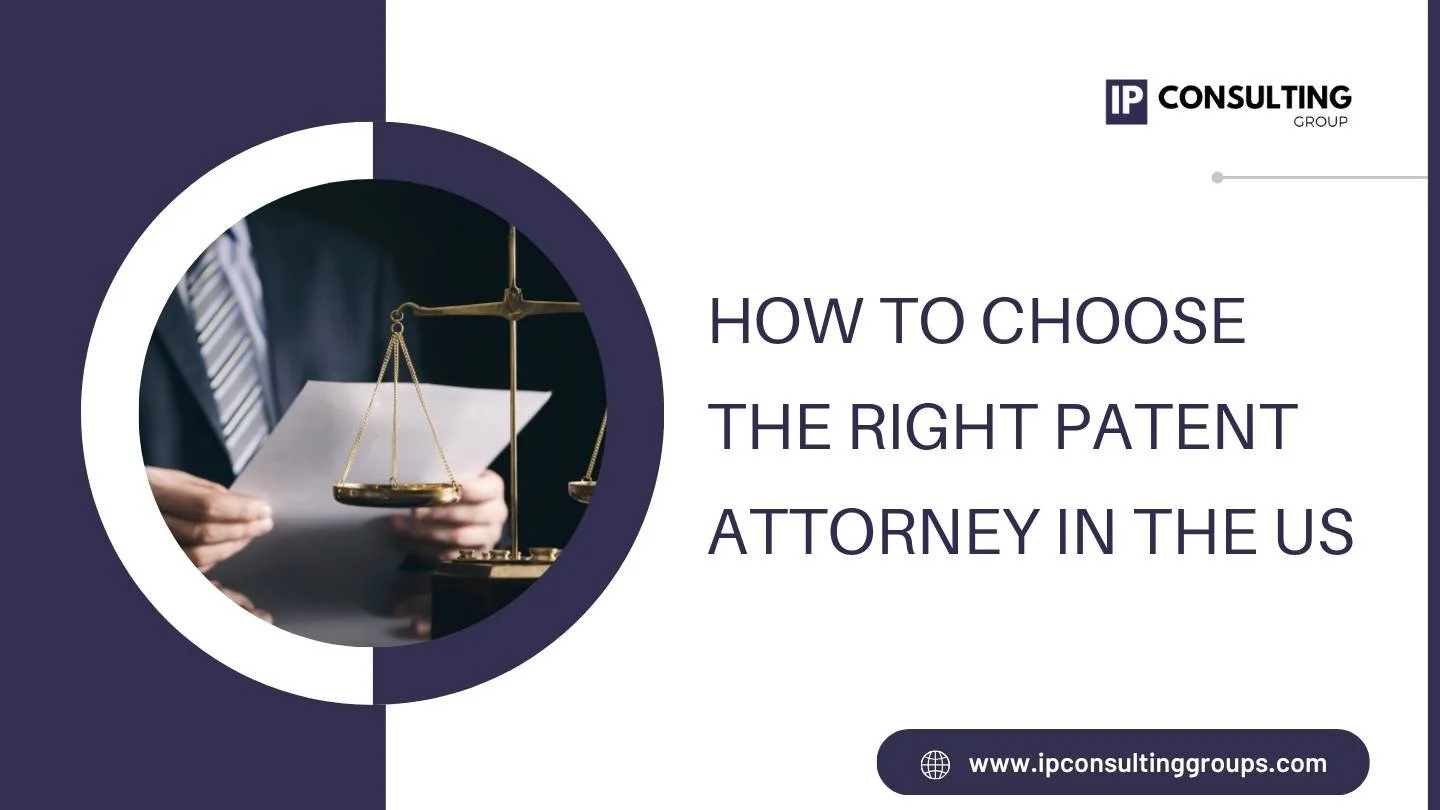How to Choose the Right Patent Attorney in the US
Patent attorney selection is a critical step in protecting your inventions and intellectual assets. Whether you’re an independent inventor, a startup founder, or a corporate innovator, choosing the right legal partner ensures your intellectual property is properly secured and defended. In this guide, we’ll walk you through everything you need to know to select the best patent attorney in the US.
1. Start with USPTO Accreditation
Your first step is to make sure the attorney is USPTO registered. This means they’re officially recognized by the United States Patent and Trademark Office and legally authorized to prepare, file, and prosecute patent applications. Without this qualification, they cannot represent you in front of the USPTO.
Verifying their credentials is simple—search the USPTO attorney directory to confirm their status. A registered attorney understands the ever-changing landscape of intellectual property services and will provide you with compliant and strategic legal representation.
2. Match Technical Expertise to Your Invention
A good patent attorney will not only know the law but will also understand your invention on a technical level. Most patent attorneys have degrees in engineering, computer science, biotech, or physics, allowing them to work as effective patent filing experts across various industries.
If your innovation involves software, AI, or medical devices, seek someone with a relevant background. This helps them draft accurate claims, anticipate examiner objections, and avoid delays during the prosecution process.
3. Choose a Firm With a Strong IP Portfolio
Working with an IP law firm that specializes in end-to-end intellectual property protection is advantageous. These firms typically offer a complete range of services beyond patents, including trademark lawyers, copyright filing, licensing strategy, and litigation support.
A firm with a strong portfolio will also have experience handling office actions, prior art rejections, and international filings, making them a valuable asset to your long-term IP roadmap.
4. Evaluate Past Work and Client Reviews
Before hiring an attorney, explore their track record. Review sample patents they’ve filed, and look for industries they’ve served. Client testimonials and online reviews can reveal how effective and responsive the attorney is.
An experienced patent attorney should demonstrate successful outcomes in obtaining patents, managing enforcement actions, and helping clients monetize their IP. If you’re investing in intellectual property services, outcomes matter just as much as experience.
5. Ask About the Patent Filing Process
Understanding the patent process from start to finish is crucial. A competent attorney will guide you through:
Invention disclosure
Prior art search
Patentability analysis
Drafting specifications and claims
Filing with the USPTO
Handling office actions
Ask the attorney to clearly outline timelines, documentation needs, and what to expect at each stage. A transparent filing process builds trust and helps you avoid surprises.
6. Compare Pricing and Fee Structures
Patent attorneys charge either flat fees or hourly rates. Make sure you understand how you will be billed for searches, drafting, revisions, and submissions. Always request a written quote for the full scope of services.
Investing in a qualified patent attorney is better than choosing the cheapest option. Poor-quality filings can lead to rejections or even invalid patents later on, increasing your costs in the long run.
7. Evaluate Communication and Accessibility
You should feel comfortable communicating with your patent attorney. Since patent filings can take 1–3 years to complete, you’ll want a responsive partner who explains legal terms in simple language and keeps you updated throughout the process.
Great attorneys educate their clients. They empower inventors and startups to understand the value of their intellectual property and how to use it strategically.
8. Consider International Filing Options
If you plan to protect your invention globally, check whether the attorney or their firm offers PCT (Patent Cooperation Treaty) or other international patent filing services. Working with someone who understands foreign filing procedures ensures smooth expansion into markets like Europe, China, or Canada.
International strategy is part of a complete IP solution and should align with your business growth plans.
9. Assess Strategic Thinking
Beyond paperwork, a good patent attorney helps you think long term. Are you building a defensible IP portfolio? Will this patent attract investors? Can it support licensing deals or future litigation?
Your attorney should help you answer these questions and design a patent strategy that fits your business model. Strategic insight is the difference between a filed patent and a valuable one.
10. Trust the Process, But Choose the Right Partner
The patent process is a journey. By choosing the right legal partner, you improve your chances of success, reduce costs, and secure meaningful protection for your innovation.
Be methodical, ask questions, and only work with professionals who make your goals their priority.
Need a Trusted Patent Attorney?
IP Consulting Group is your trusted partner for all things related to patents, trademarks, copyrights, and IP strategy. Our USPTO registered patent attorneys and seasoned experts provide end-to-end intellectual property services tailored to startups, enterprises, inventors, and legal teams across the US.
Whether you're filing your first patent or managing an international IP portfolio, we bring legal precision, business insight, and technical expertise to every project.
👉 Contact IP Consulting Group today for a free consultation, and let’s secure your innovation together.

